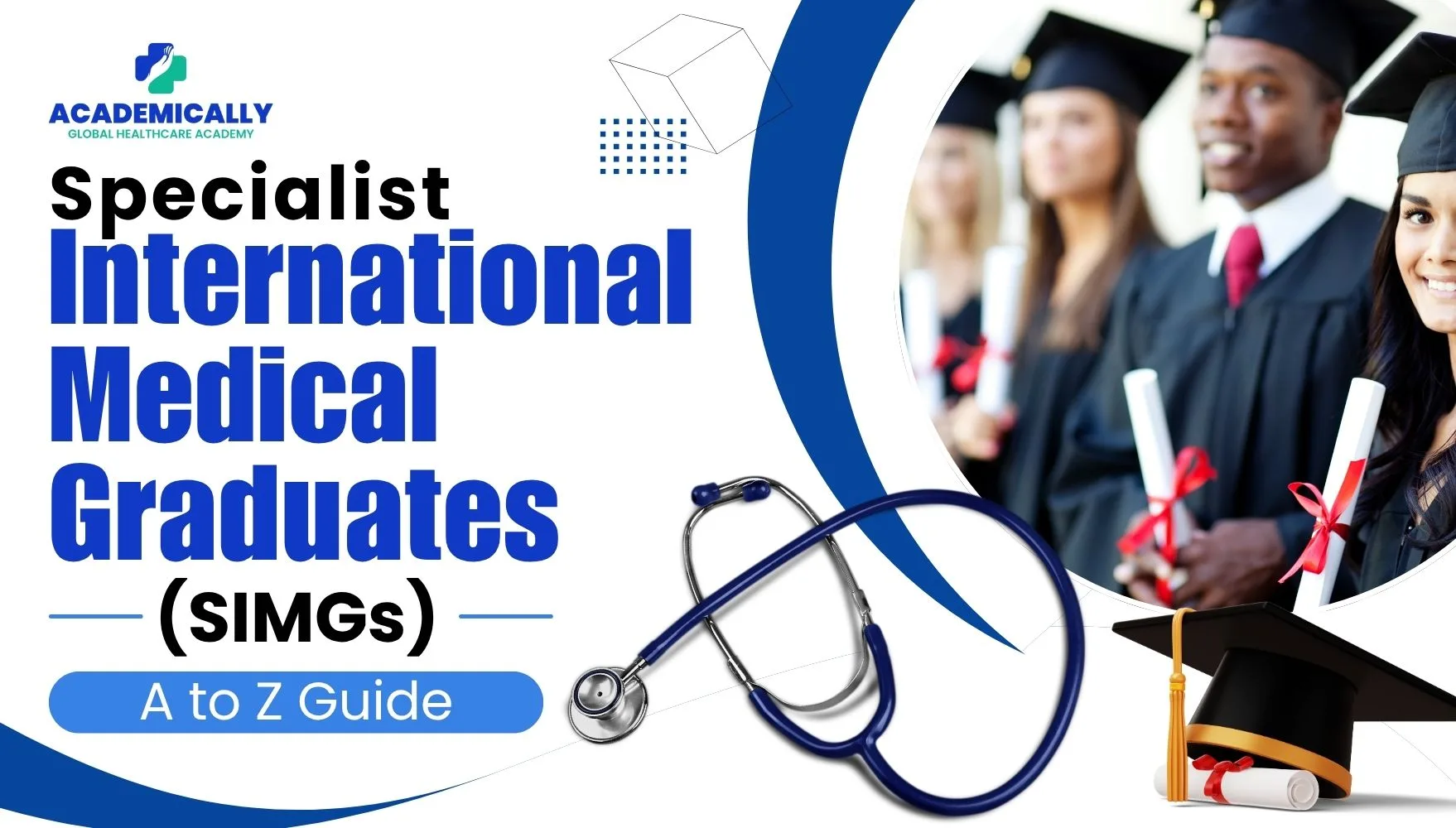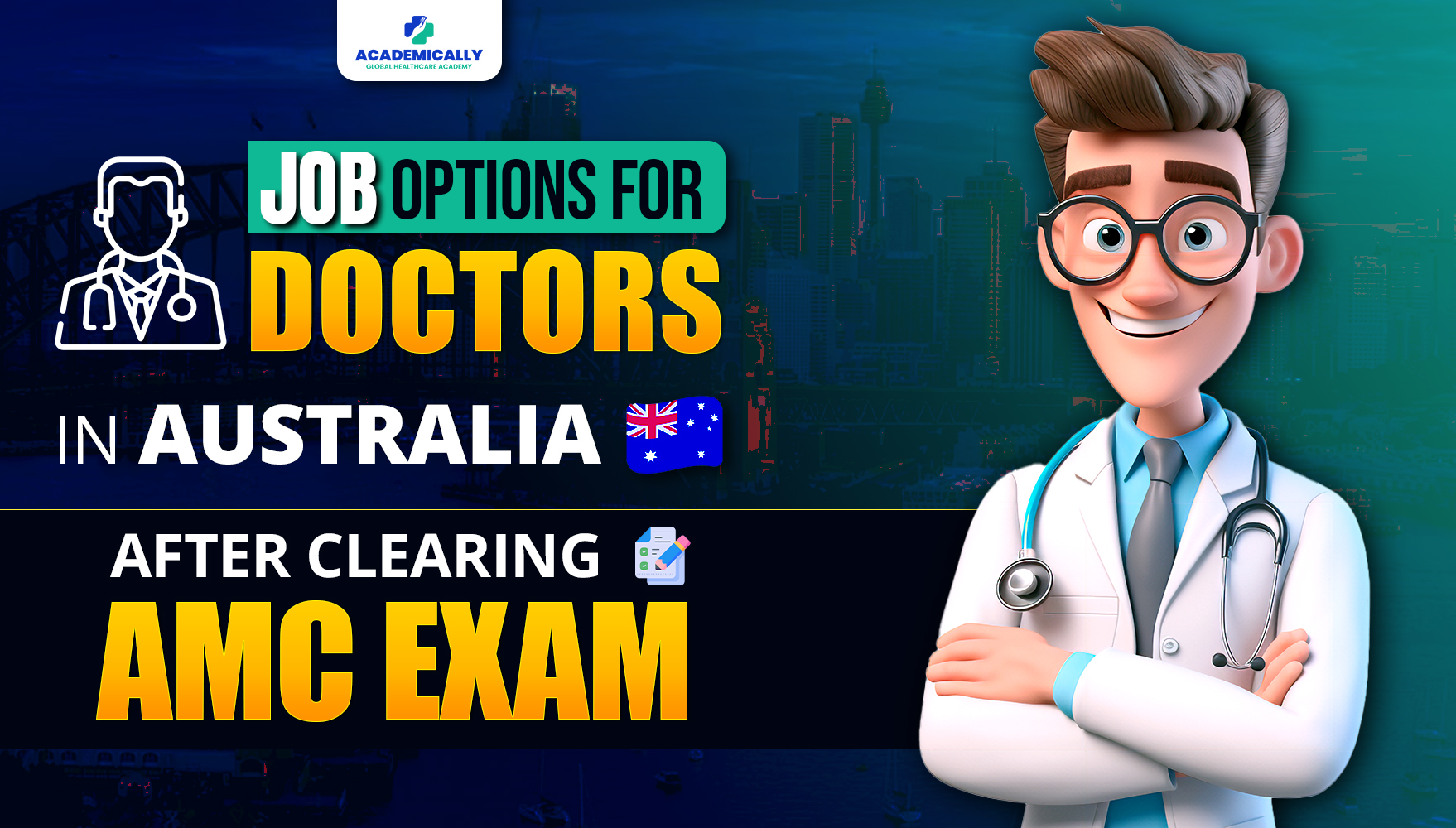Who are SIMGs?
The SIMG full form is Specialist International Medical Graduate.
SIMGs are doctors who hold international specialist qualifications and wish to practise in Australia as recognised specialists.
To be considered an SIMG, you must:
- Has obtained their primary medical degree outside Australia or New Zealand.
- Has completed specialist training (e.g., in cardiology, dermatology, psychiatry, etc.) overseas.
- Are now seeking specialist registration to practise in Australia.
Do SIMGs need to take AMC exams?
No, and that’s the good news.
Only the general practitioners or junior doctors have to go through the Standard Pathway, Specialist international medical graduates don’t need to take AMC MCQ or Clinical exams. Instead, they have to apply through the Specialist Pathway, which assesses their training and experience against Australian standards.
Related Article: Australian Medical Council (AMC) Exam Complete Guide
Types of Specialist Pathways
Depending on your background and the job opportunity you’ve received in Australia, you may be eligible for one of these three SIMG pathways:
1. Specialist Pathway – Specialist Recognition
This is the most common route for SIMGs who want to be recognised as a specialist in Australia. You’ll need to:
- Apply to the relevant specialist medical college (e.g., RACP, RACGP, RACS).
- The college will assess your training, qualifications, and clinical experience.
You’ll be judged as:
- Substantially Comparable
- Partially Comparable
- Not Comparable
If you’re deemed substantially or partially comparable, you’ll be allowed to work under supervision, with some conditions.
Once you meet those requirements, you can apply for full specialist registration.
This pathway is ideal for SIMGs without a job in an Area of Need and whose international specialist qualifications are not on the expedited list.
2. Specialist Pathway – Area of Need
This pathway is for SIMGs who have been offered a job in a location that’s officially recognised as an Area of Need. This is usually rural or remote regions with specialist shortages.
Here’s how it works:
- You’ll still undergo a comparability assessment by the relevant specialist college.
- If accepted, you’ll get limited registration to work in that specific job.
- Over time, once conditions are met, you can progress to full specialist registration.
This route helps Australia fill healthcare gaps and gives specialist international medical graduates in Australia a direct job opportunity.
3. Expedited Specialist Pathway (NEW)
This is one of the biggest updates for SIMGs as of late 2024 and into 2025.
Some qualifications from certain countries are now considered substantially equivalent to Australian specialist qualifications. If your qualification is on this approved list, you don’t have to go through the college assessment process.
Through this expedited specialist pathway:
- You apply directly to the Medical Board of Australia.
- There’s no need for college comparability assessment.
- Your registration process becomes faster and simpler.
Eligibility: Am I Qualified to Apply as a SIMG?
Here’s a quick checklist:
- Your primary medical degree was obtained outside Australia or New Zealand.
- You’ve completed an approved specialist training program overseas.
- You’re seeking to work as a specialist in Australia (not as a GP or junior doctor).
- You meet the English language proficiency requirements.
- You have (or are applying for) registration or licensure in your home country.
How to Apply: Step-by-Step Overview
For Specialist Recognition or Area of Need:
- Contact the Relevant Medical College.
- Submit your comparability application.
- Undergo assessment and receive a comparability outcome.
- Apply for registration through AHPRA (Australian Health Practitioner Regulation Agency).
- Begin supervised practice if needed.
- Progress to full specialist registration.
For Expedited Pathway:
- Check the accepted qualifications list.
- Apply directly to the Medical Board of Australia.
- Submit your documents and complete identity checks.
- Receive registration decision (much faster).
Also Read: What is AHPRA
Important Tips for SIMGs
- Start early: The assessment process can take several months.
- Collect all your documents: This includes proof of training, CV, reference letters, and identity documents.
- Stay updated: The expedited qualifications list is evolving.
- Get support: Many doctors use immigration agents or career services to help specialist international medical graduates in Australia understand the process.
- Prepare for supervision: Even if you’re substantially comparable, some form of supervised practice may be required before full recognition.
Final Thoughts
Becoming a recognised specialist in Australia is absolutely possible for those with international specialist qualifications. With clear pathways, especially the new expedited option, Australia has made it easier for SIMGs to join its healthcare system.
So, before you make the move, understand the pathways first. Understanding the pathways will save you a lot of time and confusion. If you're finding it hard, reach out to us for help.





